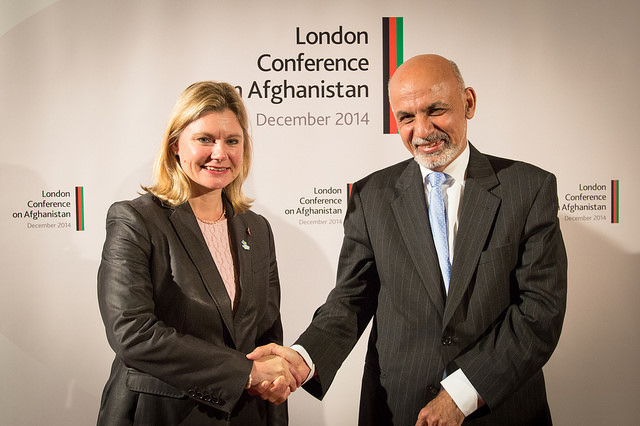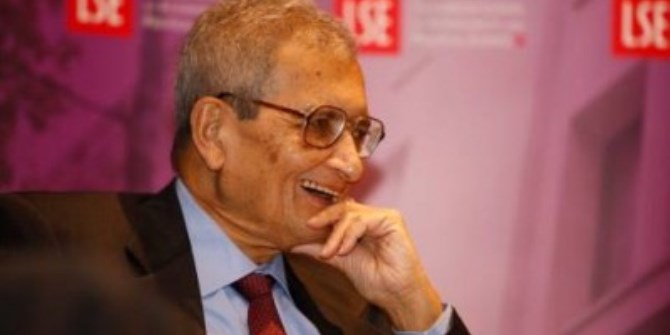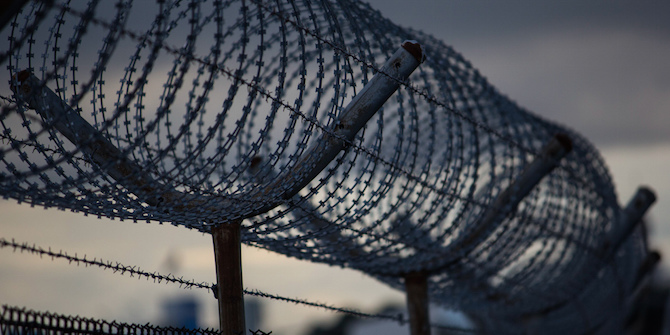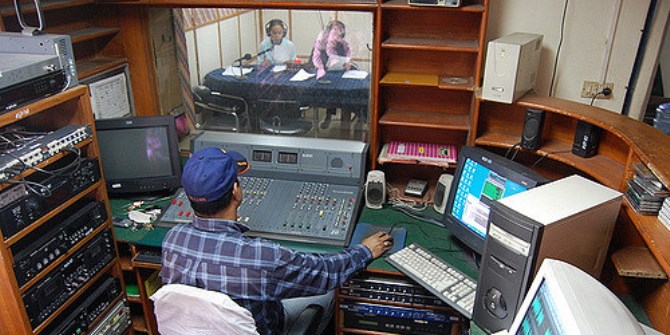 On 1st December 2014, USAID’s Louise Walker spoke at LSE about the current state of Afghanistan in the wake of elections and the appointment of a new President. Maya Schmitt reports.
On 1st December 2014, USAID’s Louise Walker spoke at LSE about the current state of Afghanistan in the wake of elections and the appointment of a new President. Maya Schmitt reports.
Earlier this month, Dr Louise Walker gave a public lecture at LSE entitled Kabul: the growth story you don’t know. The event, organised by the LSE Asia Research Centre and chaired by Professor Athar Hussain, sought to address the current state of Afghanistan in light of the recent election of President Ghani. Currently serving in USAID’s office of Afghanistan and Pakistan Affairs, Walker is also a Senior Advisor on both countries for the UK Department of International Development (DFID). Her talk provided enlightening insights into the advances made by Afghanistan since 2002, constructed around the idea that Afghanistan seems to be emerging from an era of transition and entering an era of transformation.
Elaborating on the idea of transformation, Walker highlighted several key aspects that were set to be addressed at the London Conference on Afghanistan on 4th December. The Conference was intended to provide an opportunity for the new Afghan government to lay out their vision for reform. Co-hosted by the UK and Afghan governments, it also sought to foster a stronger sense of mutual accountability between Afghanistan and the international community for the transformation phase.

Walker briefly spoke about the immense changes that have taken place since President Ghani took office, such as the establishment of an Access to Information law designed to increase transparency in the country. Ghani is also actively engaging with neighbouring states, undertaking state visits and laying foundations for bridging gaps in Afghanistan’s international relations. His wife is also remarkable in that she has been politically active since her husband took power, for example setting up an office to advise on internally displaced people (IDP). Taking on such a public profile is highly unusual for politician’s wives in the region and adds to the sense that Afghanistan is moving in a direction of progress.
Before looking ahead, Louise Walker recapped on Afghanistan in 2002. Average life-expectancy was just 42 years, women were entirely excluded from public life, there was virtually no reliable electricity and the country as a whole had very little contact with the outside world. According to the UN, the standard of living in Afghanistan has in fact shown more improvement than any other country in the world since 2000. Looking at investments by USAID in health, education, standard of living and gender equality, Walker highlighted that a number of very positive developments can be seen. For example, a 62% decrease in under-five mortality has been documented. There is a 61% ownership of mobile phones and 29% of the population are now connected to the electrical grid.
Walker emphasised that the US is keen to help build the new government’s capacity and was looking forward to hearing more about Ghani’s vision about “realising self-reliance” at the London Conference. On the whole, the world is now looking at Afghanistan with interest, waiting to see how the transformation will unfold. Global concerns centre on questions of economic efficiency and viability. However, although London portrays a political and symbolic moment for Afghanistan to promote their vision and clarify to donors how they can help, civil society within Afghanistan also needs to find its own voice.
Walker’s presentation sparked a range of questions from the audience. Primary concerns related to economic development, the judiciary’s capacity to impose the rule of law and the relationship with neighbour states. The growth of poppy was mentioned as a dominant revenue source in agriculture and concerns were raised around its eradication. Walker suggested that in order to reduce the incentives associated with cash crops like poppy, the financial sector has to gain more stability, with regulatory regimes in place . Recognising the importance of engaging with and supporting the right sectors will also be essential. In general this means that the economic conversation in Afghanistan needs to be improved upon and extended.
Furthermore, the idea of increasing agriculture in the country sounds simple looking from the outside. Unfortunately, due to the negative impacts of war much of Afghanistan’s infrastructure has been rendered ineffective. The Soviets, for example, built some bridges and other infrastructural support but these are now inadequate. The new government is therefore looking at developing ties with other regions to support infrastructure creation and renewal.
A member of the audience suggested that Afghanistan is haunted by “demons of donors coming in and not following through”. Walker suggested this is a prevalent concern and the fact that President Ghani wants more money put into the nation’s budget is making donors nervous and cautious of corruption. There should be less focus on foreign contractors and the people living in Afghanistan should be equipped with the knowledge to follow ideas implemented once the contractors leave. Walker also suggested a prognosis of a achieving some kind of middle ground for domestic donors that will not frighten international donors. Once again, she expressed hope that the Conference in London will provide insight into this topic.
Finally, Walker addressed the new urban planning of Kabul and the humanitarian challenges in Afghanistan. Up until now it has been unclear how the government is dealing with migrants and IDPs. This winter, the new government will have to demonstrate the scope of its capacity. There are agencies and aid present but the larger concern rests on what can be done in form a permanent rather than reactive structure.
Dr Louise Walker’s closing commentary referred back to the London Conference and what it can subsequently provide for Afghanistan. There is an enormous question of fatigue, and whether Western countries will have enough patience to support Afghanistan in its transformation. President Ghani has to be conscious of the fact that there will not always be the same level of aid for his country. Transparency and accountability in particular need to be prioritised if foreign aid and investment is to continue in the long term. Strong reforms, agendas, making public appearances and having an outward-looking stance are important in transforming a country that has made tremendous change thus far to help it deal with challenges in the years to come.
About the Author
 Maya Schmitt is an LSE Masters candidate in Culture and Society
Maya Schmitt is an LSE Masters candidate in Culture and Society
Note: This article gives the views of the author, and not the position of the India at LSE blog, nor of the London School of Economics. Please read our comments policy before posting.







